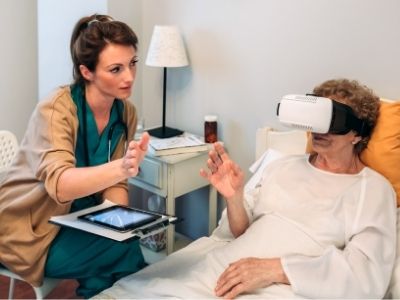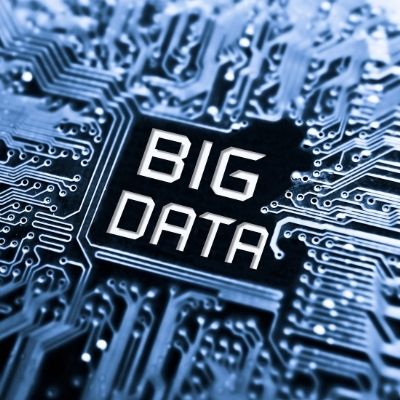The past couple of years have brought a lot of changes for the HealthTech industry and they’re only going to continue. In many ways, the changes that have occurred gave us a glimpse of what to expect over the next decade. That’s why we’re so excited to bring you these 9 exciting new HealthTech trends in 2022 to watch.
We’ll look at:
- Telehealth
- Artificial intelligence
- Virtual reality
- Wearable tech
- Internet of things
- Big data and analytics
- Data Security
- Predictive care
- Genomics
The technology behind these trends aren’t new. However, the pandemic helped push them to the forefront and use them in much bigger ways. Keep reading to learn what you can expect to see in the HealthTech industry for foreseeable future.
1. Telehealth
One of the biggest trends we saw in the past couple of years was the rise of telehealth, and 2022 will be no different. While telehealth and telemedicine have been around for a while, we never had to rely on them as much as we have during the COVID-19 pandemic. Thankfully, technology such as smartphones, tablets, and computers greatly increased access to health care.
According to the United States Department of Health and Human Services (HHS), “nearly half (43.5%) of Medicare primary care visits were provided through telehealth” in April of 2020. Tech companies are betting big on the growing telehealth market with its estimated $185 billion growth by 2026.
2. Artificial Intelligence in the Healthcare Industry
While it’s been the subject of countless sci-fi movies, we’ve seen artificial intelligence (AI) become an important tool during the pandemic and going into 2022. It became essential for identifying hotspots for COVID-19, crucial places to distribute vaccines, and it may begin to play a role in future responses to the virus.
It may also play a role in future outbreaks. As data science manager Allison Langley explains to Managed Healthcare Executive, “There is certainly the capability for AI to help make those decisions around which population should receive vaccinations and how to schedule that.
AI may become more important as it’s combined with data to possibly:
- Improve health outcomes
- Reduce healthcare costs
- Decrease hospitalizations
Want to stay on top of SEO for your MedTech device or healthcare software company? Check out our Google SEO update to stay ahead of the curve!

3. Virtual Reality
Like AI, virtual reality (VR) technology is having a watershed moment in the healthcare industry. One of the best examples is in training surgeons, where it helps medical professionals to both practice and sharpen their skills without needing to be in an operating room. It brings a whole new meaning to “on-the-job training.”
VR can also benefit patients. In a release from Cision PR Newswire, VR therapy systems are moving forward as they become clinically validated and registered with the FDA. These systems can help with neurological and physical rehabilitation, as well as increase efficiency among health care providers.
4. Wearable Tech
Wearables aren’t just about measuring steps or constantly checking your watch anymore. The health tech industry is now finding ways to give more power to patients to help manage their conditions, as well as make decisions. Doctors are already able to track blood pressure and glucose levels, as well as keep an eye on chronic conditions like diabetes and asthma.
Now we’re seeing early adopters of new uses for remote patient monitoring. These new devices, such as the mobile-wrap around, can monitor atrial fibrillation and provide crucial health data to doctors. We’re also seeing the rise of health apps that can help patients keep track of their conditions in real-time, such as blood sugar levels.
5. Internet of Things (IoT)
The internet of things is a term to describe all the devices currently connected to the internet. This includes your smartphone, tablet, Apple Watch, all of which are collecting and sharing data. The internet of medical things (IoMT) includes all medical-related devices.
But IoMT isn’t just about data; it also has the possibility of saving healthcare companies a lot of money. According to Goldman Sachs, IoMT may save $300 billion as it allows for medicine to be practiced more efficiently. Early adopters are keenly aware of this since the industry was valued at $44.5 billion in 2018 and is projected to grow to $254.2 billion by 2026.
Want to get your HealthTech offering noticed online? Check out our 2021 SEO Guide to get started!

6. Big Data & Analytics
The rise of wearables, IoMT, and health apps have required the rapid organization of medical information. Wearables and other digital devices have also made the collection of data much more cost-efficient. This access to health data showed its usefulness during the pandemic and created a path for how it can be used in the future of health tech.
The benefits of big data and analytics are twofold. On the one hand, it can help healthcare professionals create predictive models to anticipate spikes as well as the best places to focus vaccination efforts related to COVID-19. On the business side, it gives insight into clinical, financial, and operational data which can make healthcare much more efficient in the future.
7. Data Security
With big data and analytics comes concerns about security. Social security numbers and banking information are prime targets for hackers. With that much personal information floating around, it’s critical that patient information is kept safe and secure.
Fortunately, data security experts are on the job:
- Building strong firewalls to protect sensitive information
- Making regular security checks, sometimes with the help of AI and other automated tools
- Taking COVID masks into consideration when developing facial recognition systems
Cyber security experts are always on the lookout for new and better ways to protect your data. They’re also focused on anticipating new threats and having protections in place to fight them.
8. Predictive Care

Thanks to all this data, the HealthTech industry is poised to play a major role in predicting and even preventing illness. According to the Pew Research Center, 21% of adults in the U.S. already wear a smartwatch or fitness tracker. A commitment to these kinds of choices can help guide them to healthier lifestyle choices and better overall quality of life.
These devices can aid in creating personalized prevention programs that help people avoid expensive treatment plans while prioritizing preventative care. The benefits go beyond the body and may even help the mind. Some health technology companies are creating software that can even predict mental and autoimmune issues based on smartphone data.
9. Genomics
Genomics is an area of science focused on creating new medications and tools in the fight against disease. Stem cells play a major role in this field, with researchers collecting them with the goal of using the cells in gene treatments. As more scientific organizations and corporations focus their efforts, we’re sure to see advancements in the near future.
The Future of Health Tech Trends
The technology fueling these trends has been around for a while, but the pandemic gave them an opportunity to show their worth. Now we’re seeing them being adopted more rapidly to aid patients as well as those who work in the healthcare industry.
Telehealth was the biggest trend during the pandemic and will continue to be in the future of the health industry. AI and VR will contribute to both better outcomes for patients and more training for health care professionals. Wearables are evolving from trendy gadgets to vital remote patient monitoring and collecting data. Together, big data and predictive care are working for better outcomes on a global scale. Data security will become increasingly important with the rise of big data, and a focus on genomics will likely bring new advancements in the near future.
Do you want to take your HealthTech marketing to the next level? Schedule a meeting today. We’ll walk through the process with you to see how we can help!
Baker Marketing Laboratory has spent years helping healthcare businesses find their footing in the digital world. Through a combination of inbound digital marketing and powerful messaging strategies, we help you craft a marketing campaign that resonates with your ideal customer. Contact us today to schedule a call and learn the difference we can make for your business.


